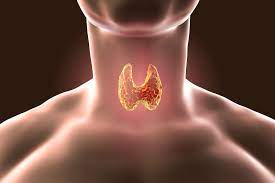Dealing with a partner who has erectile dysfunction (ED) can be a sensitive and challenging situation for both individuals involved. However, with patience, understanding, and proactive communication, couples can navigate this issue together and maintain a strong and fulfilling relationship. Here are some key points and descriptions of how to deal with a partner experiencing ED:
Page Contents
Open and Honest Communication
Encourage your partner to share their feelings, concerns, and experiences regarding Erectile Dysfunction without fear of judgment.
Express your own emotions and concerns in a supportive and empathetic manner.
Discuss how ED impacts both of you and explore potential solutions together. you can also try Super Vidalista to cure Erectile Dysfunction.
Avoid Blame and Judgment
Understand that ED is often caused by various factors beyond your partner’s control, such as stress, medical conditions, or medication side effects.
Avoid placing blame or making your partner feel inadequate or ashamed.
Focus on supporting each other and finding solutions rather than assigning fault.
Seek Professional Help
Encourage your partner to consult with a healthcare provider specializing in sexual health.
Accompany your partner to medical appointments if they feel comfortable, and offer your support during the consultation.
Be open to exploring different treatment options recommended by the healthcare provider, such as medication, therapy, or lifestyle changes.
Explore Alternative Forms of Intimacy
Understand that intimacy extends beyond sexual intercourse and explore other ways to connect emotionally and physically.
Engage in activities that promote closeness and intimacy, such as cuddling, kissing, and spending quality time together.
Experiment with alternative methods of sexual pleasure that don’t rely solely on penetrative intercourse, such as oral sex, manual stimulation, or the use of sex toys.
Practice Patience and Understanding
Recognize that overcoming ED may take time and may involve setbacks along the way.
Be patient with your partner and yourself, and avoid placing unrealistic expectations on the situation.
Focus on progress and celebrate small successes together, no matter how minor they may seem.
Address Relationship Dynamics
Consider attending couples therapy or counseling sessions to address any relationship issues that may arise from ED.
Explore how ED affects your relationship dynamics, communication patterns, and overall satisfaction.
Work together to strengthen your connection and build resilience as a couple.
Prioritize Overall Health and Well-being
Encourage your partner to prioritize their physical and mental health, as these factors can impact sexual function.
Support healthy lifestyle choices, such as regular exercise, balanced nutrition, adequate sleep, and stress management.
Take care of yourself and prioritize self-care practices to maintain your well-being during this challenging time.
Maintain a Positive Outlook
Stay optimistic about the future of your relationship despite the challenges of dealing with ED.
Focus on the strengths of your relationship and the love you share rather than dwelling on the difficulties.
Remember that with patience, understanding, and mutual support, you can overcome this obstacle together.
In conclusion, dealing with a partner with erectile dysfunction requires patience, empathy, and proactive communication. By openly discussing feelings and concerns, seeking professional help, exploring alternative forms of intimacy, practicing patience and understanding, addressing relationship dynamics, prioritizing overall health and well-being, and maintaining a positive outlook, couples can navigate this challenge together and strengthen their bond in the process. Ultimately, facing ED as a team can lead to greater intimacy, connection, and resilience in the relationship.
FAQs
What is erectile dysfunction (ED)?
Erectile dysfunction, commonly known as ED, is the inability to achieve or maintain an erection sufficient for satisfactory sexual performance.
How common is erectile dysfunction?
Erectile dysfunction is a prevalent condition, affecting millions of men worldwide. It becomes more common with age but can occur at any stage of life.
What causes erectile dysfunction?
Erectile dysfunction can be caused by various factors, including physical health issues (such as diabetes, heart disease, or obesity), psychological factors (such as stress, anxiety, or depression), lifestyle factors (such as smoking, excessive alcohol consumption, or lack of exercise), and certain medications or treatments.
How should I approach the topic of erectile dysfunction with my partner?
Approach the topic with sensitivity, empathy, and open communication. Express your concerns and feelings in a non-judgmental manner, and encourage your partner to do the same. Emphasize your support and willingness to work through the issue together as a team.
Should I encourage my partner to seek medical help for erectile dysfunction?
Yes, it’s essential to encourage your partner to consult with a healthcare provider specializing in sexual health. A medical professional can assess the underlying causes of ED and recommend appropriate treatment options, which may include medication, therapy, lifestyle changes, or a combination of approaches.
What treatment options are available for erectile dysfunction?
Treatment options for erectile dysfunction vary depending on the underlying cause and individual preferences. Common treatment options include oral medications (such as phosphodiesterase type 5 inhibitors), vacuum erection devices, penile injections, testosterone replacement therapy, counseling or therapy, lifestyle changes (such as diet and exercise), and in some cases, surgical interventions.
How can we maintain intimacy and connection despite erectile dysfunction?
Focus on alternative forms of intimacy, such as emotional connection, communication, and physical affection. Explore non-penetrative sexual activities that can still bring pleasure and satisfaction to both partners. Keep the lines of communication open, and be supportive and understanding of each other’s needs and feelings.
What role does communication play in dealing with erectile dysfunction as a couple?
Communication is crucial when dealing with erectile dysfunction as a couple. It’s essential to openly discuss feelings, concerns, and needs, and to work together to find solutions. Encourage honest and respectful communication, and be willing to listen to each other’s perspectives without judgment.
Is erectile dysfunction a permanent condition?
Not necessarily. While erectile dysfunction can be a persistent issue for some individuals, it’s often treatable with appropriate interventions. With the right medical care, lifestyle changes, and support, many men can experience improvements in erectile function over time.
How can we support each other emotionally while dealing with erectile dysfunction?
Offer each other reassurance, understanding, and empathy. Avoid placing blame or making your partner feel inadequate. Focus on being supportive, patient, and loving, and remind each other that you’re in this together, facing the challenge as a team.
Can stress and anxiety contribute to erectile dysfunction?
Yes, stress and anxiety can contribute to erectile dysfunction by affecting hormone levels, blood flow, and psychological factors such as performance anxiety. Managing stress through relaxation techniques, exercise, and counseling may help alleviate symptoms.
Should I be concerned if my partner experiences occasional erectile dysfunction?
Occasional instances of erectile dysfunction are normal and may not necessarily indicate a serious underlying issue. However, if the problem persists or becomes a recurring issue, it’s essential to address it with your partner and consider seeking medical advice.
How can lifestyle changes impact erectile dysfunction?
Lifestyle changes such as maintaining a healthy diet, regular exercise, avoiding tobacco and excessive alcohol consumption, managing stress, and getting enough sleep can positively impact erectile function. Adopting a healthy lifestyle can improve overall health and may help alleviate symptoms of erectile dysfunction.
Is erectile dysfunction more common in older men?
Yes, erectile dysfunction becomes more prevalent with age, as underlying health conditions and age-related changes in blood flow and hormone levels can contribute to the problem. However, ED can occur at any age, and younger men may also experience it due to psychological or lifestyle factors.
Can medications or recreational drugs contribute to erectile dysfunction?
Yes, certain medications, including some antidepressants, antihypertensives, and medications for prostate conditions, can contribute to ED as a side effect. Recreational drugs such as cocaine, marijuana, and excessive alcohol consumption can also impact erectile function.
How can I support my partner emotionally if they’re struggling with erectile dysfunction?
Offer your partner reassurance, understanding, and encouragement. Listen to their concerns without judgment and let them know that you love and support them regardless of any challenges they may be facing. Be patient and empathetic, and avoid pressuring them or making them feel inadequate.
Should we consider couples therapy to address ED?
Couples therapy can be beneficial for addressing the emotional impact of erectile dysfunction on the relationship, improving communication, and exploring ways to maintain intimacy and connection. It can provide a supportive environment for both partners to work through their feelings and concerns together.
Can erectile dysfunction affect a relationship’s overall satisfaction and intimacy?
Yes, ED can impact a relationship’s overall satisfaction and intimacy by creating feelings of frustration, disappointment, and inadequacy. However, with open communication, mutual support, and willingness to address the issue together, couples can maintain and even strengthen their bond despite the challenges.
Are there any natural remedies or supplements that can help with ED?
Some natural remedies and supplements, such as L-arginine, ginseng, and DHEA, have been studied for their potential benefits in improving erectile function. However, it’s essential to consult with a healthcare provider before trying any supplements, as they may interact with medications or have adverse effects.
Is erectile dysfunction a sign of a deeper relationship problem?
Not necessarily. While ED can sometimes be a symptom of underlying relationship issues, such as communication problems or unresolved conflicts, it’s often a medical or psychological issue that can be addressed separately from the relationship dynamics. Open communication and seeking professional help can help clarify and address any relationship issues that may arise.




